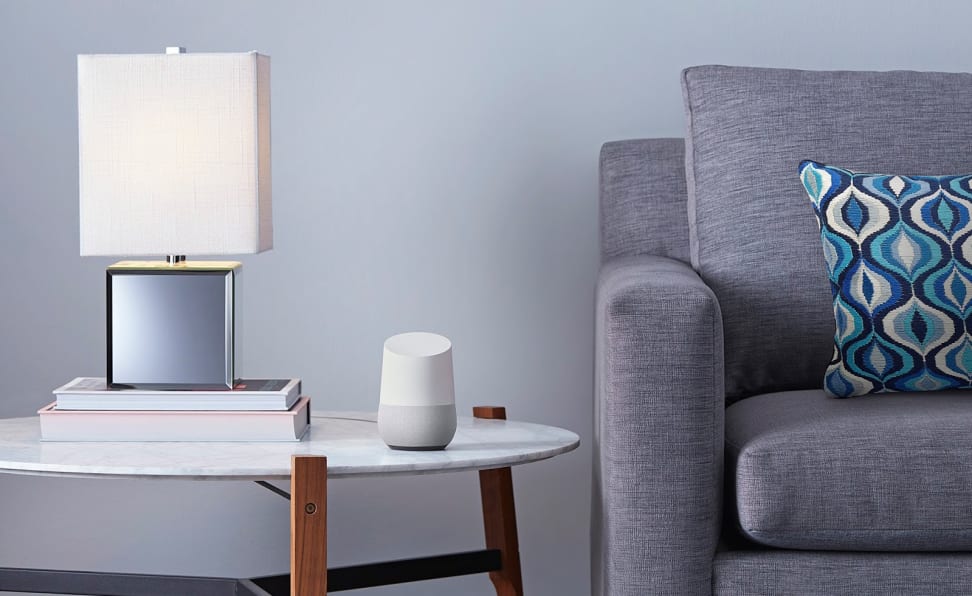 Credit:
Google
Credit:
Google
Recommendations are independently chosen by Reviewed's editors. Purchases made through the links below may earn us and our publishing partners a commission.
Google officially entered the voice-activated digital assistant race Wednesday with Google Home.
The small device will compete directly with Amazon's popular Echo and should be available to consumers later this year, Google CEO Sundar Pichai announced at the search company's annual developers conference.
The move had been anticipated, as Google looks to put its mark on a coming age of artificial intelligence in which machines learn to interpret and answer human queries by leveraging the speed and scope of cloud computing.
Project lead Mario Querioz held the device in his palm, revealing a design that was shorter and wider than Amazon's cylindrical Echo, which is powered by Amazon's virtual assistant Alexa. Microsoft also has its own personal assistant, Cortana.
Google Home will be able to play music, complete a range of tasks and answer questions that one would ask of Google search. A video showed a morning routine in which a woman checks on her flight, changes a dinner reservation and sends a text to a friend, while her husband asks the device to turn lights on and children ask homework-related questions.
{{ amazon name="Amazon Echo", asin="B00X4WHP5E", align="right" }} Pichai told the 7,000 developers present at Shoreline Amphitheater that the company was working hard on natural language processing, giving examples of how Google's search engine can understand context. Ask about movies playing, and Google will surface nearby theaters. "Let's go with Jungle Book," Pichai said, and the assistant followed up by purchasing tickets and sending them to his digital wallet.
"Every conversation is different and we're working hard to do this for billions of users around the world," he said. "It's an ambient experience that extends beyond devices, beyond just phones, to devices they wear, into their cars and even to their living rooms."
Some of the looming questions about the boom in voice-activated computing includes the security of such human-machine conversations as well as just how such voluminous personal-habit information will be used by companies such as Google and Amazon.
Amazon's $179 Echo, which has sold millions of devices since its initial rollout in the fall of 2014, can respond to a range of questions, from ordering a pizza to calling an Uber. Speaker company Sonos recently laid off some of its staff in order to pivot towards voice control. Devices such as Samsung televisions and Comcast remote controls also react to voice activation.
Siri was the first broad-based application of voice command technology when Apple introduced the feature to its iPhone in 2011. Siri founder Dag Kittlaus recently unveiled Viv, a cloud-based virtual assistant that he contends will be able to respond to queries that contain multiple layers of requests and require contextual thinking to act on. Think, "Cancel my hotel reservation but book a new flight for me and a new dinner reservation," which means the virtual assistant needs to mine your calendar information to understand what trips and meals you mean.
Hands-free interaction with computers has broad applications in the automotive space, as self-driving car features continue to surface in vehicles. Google has spent the past seven years working to create a fully autonomous car.
Related Video
{{ brightcove '4800867041001' }}



